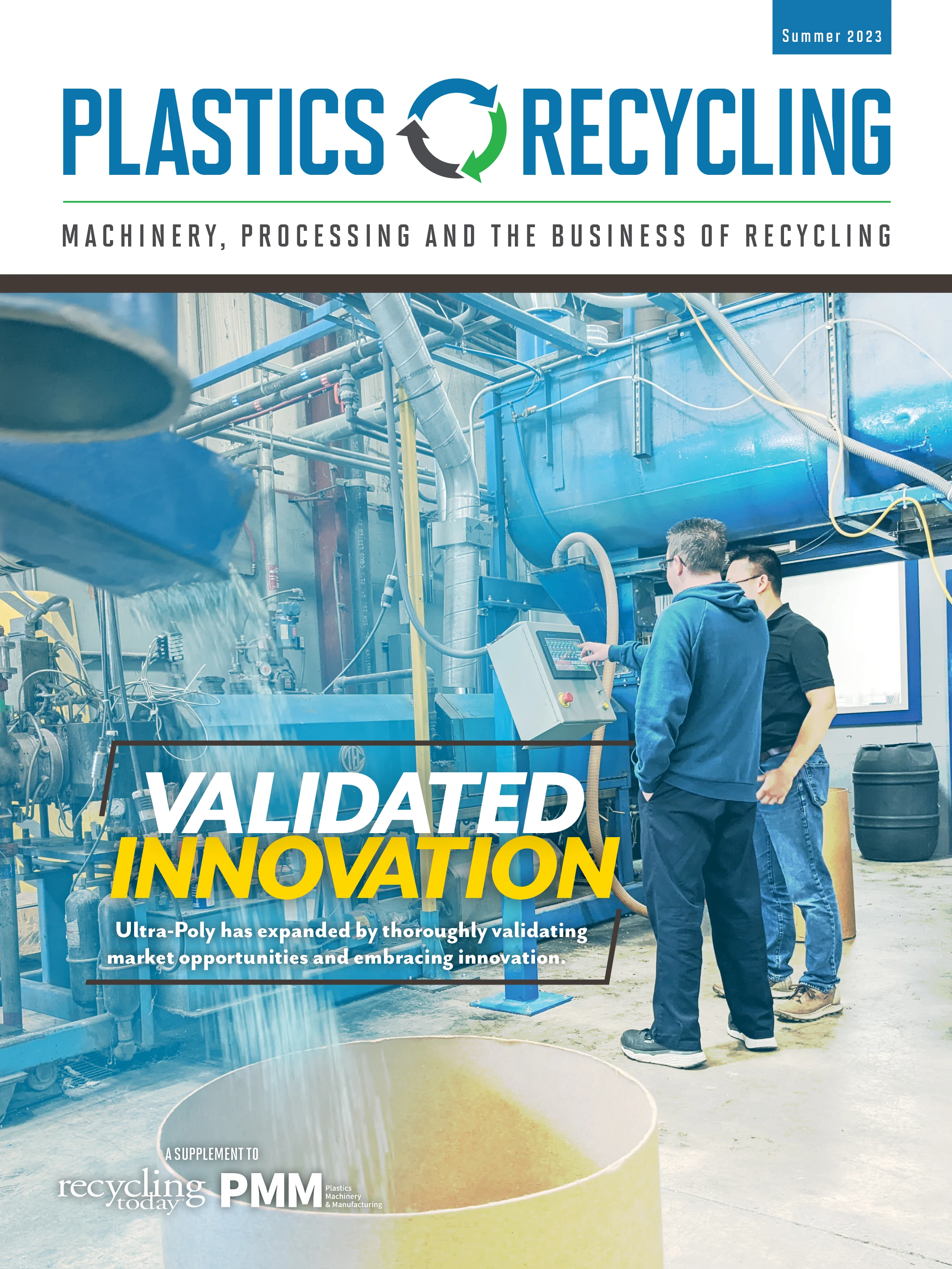
Image courtesy of Spin Master

Sustainability efforts in toy manufacturing are not a new concept.
Reducing environmental impact on the packaging side, such as removing plastic windows from blister packaging, has been a focus, but, over the past several years, giants such as Mattel, Hasbro and Lego have introduced recycled content in their products to address plastic pollution and meet customers’ sustainability demands.
Now, Spin Master—among the world's largest toy manufacturers—is following suit with the introduction of its Rubik’s Re-Cube.
The iconic puzzle toy was recreated and introduced by Toronto-based Spin Master in January and is the first 100 percent-recycled Rubik’s 3x3 Cube in its product offering. The cube, originally made with virgin acrylonitrile butadiene styrene (ABS), now is made with 100 percent-recycled ABS, including the core mechanism. It is packaged in 100 percent-recycled cardboard that is certified by the Forest Stewardship Council.
“We are exploring and implementing ways to minimize the impact of our products and operations on our planet, creating magical play experiences for children and families while being responsible custodians of the world,” says Tammy Smitham, vice president of corporate social responsibility at Spin Master.
Reimagined future through recycling
Spin Master’s recycling efforts began in 2021 when it partnered with TerraCycle, a Trenton, New Jersey-based recycling company specializing in hard-to-recycle material. Originally, the partnership was to recycle toys and games but expanded in April 2022 to include all Spin Master packaging in the U.S.
“We know kids outgrow their toys, so we wanted to give our toys a reimagined future instead of sending them to landfills,” Smitham says. She notes enough Spin Master toys have been collected to build a playground made of recycled toys.
The toys are sent to TerraCycle’s material recovery facilities and sorted manually based on their characteristics and composition as well as by using size separation, sink/float, optical sorting, air density, gravity, magnetic and other methods. The plastic is then cleaned and sent to third-party partners for reprocessing into pellets, flakes or powder for use in manufacturing.
Spin Master works with a recycled resin subcontractor in Asia to secure the material it uses in toy making, and Smitham says the resin supplier meets all quality certification needs throughout the supply chain to guarantee the accuracy of the recycled resin claims Spin Master makes.
The Re-Cube is not Spin Master’s first foray into incorporating recycled content into its products; rather, it is the result of lessons from its Mindful Classics collection, which includes games like Chess & Checkers and Four in a Row with game pieces made with recycled plastic. Smitham says the recycled materials in those games eliminated the need for 55,000 pounds of virgin plastic.

To choose which material is best for each product, she says Spin Master employs chemical and mechanical testing to validate quality and safety.
U.K.-based plastic injection molder Adreco Plastics says the versatility of petroleum-based thermoplastic ABS, the plastic used in the Re-Cube, makes it popular in several industries. ABS easily can be molded, sanded and shaped, and it takes color easily, allowing finished products to be dyed in exact shades to meet precise project specifications, Adreco says.
British Columbia-based Reclaim Plastics also says ABS does not have any appreciable degradation in quality after being melted and re-extruded, making it conducive to recycling.
According to Forbes, the Re-Cube design team initially set a goal of making an 80 percent-recycled toy, but, through testing, discovered the material strength and color adaptability of ABS could make for a 100 percent-recycled cube.
The push forward
The Rubik’s Re-Cube is part of Spin Master’s Playsponsible initiative, which was launched to create more sustainable options within its products’ life cycles, the company says.
Smitham adds that the findings from using recycled content in Spin Master’s Mindful Classics collection as well as the Rubik’s Re-Cube are being applied toward the sustainable creation of other products in the company’s toy portfolio.
For example, she says, the classic Rubik’s 3x3 cube will be made with 20 percent recycled plastic. The company also recently launched its first collection of Gund brand Sustainably Soft Friends plush toys, which are made from recycled polyethylene terephthalate bottles, including the fiberfill and thread. Each plush includes the equivalent of 10 bottles.
Later this year, Smitham says Spin Master will launch its first collection of 100 percent-recycled Sustainably Soft Baby Dolls as well as another classic children’s toy—an Etch A Sketch that will include 86 percent recycled plastic.
“[We’re eliminating] the need to extract new oil from the ground while also helping reduce the amount of plastic trash that ends up in landfills or the ocean by giving it a second life in our products,” she says.

Explore the Summer 2023 Plastics Recycling Issue
Check out more from this issue and find your next story to read.
Latest from Recycling Today
- Phoenix Technologies closes Ohio rPET facility
- EPA selects 2 governments in Pennsylvania to receive recycling, waste grants
- NWRA Florida Chapter announces 2025 Legislative Champion Awards
- Goldman Sachs Research: Copper prices to decline in 2026
- Tomra opens London RVM showroom
- Ball Corp. makes European investment
- Harbor Logistics adds business development executive
- Emerald Packaging replaces more than 1M pounds of virgin plastic





